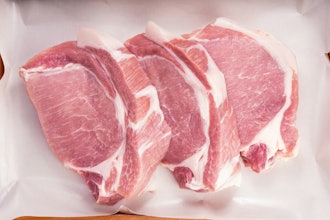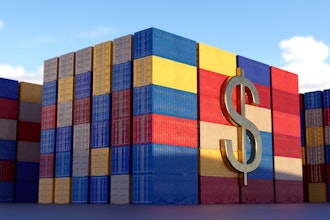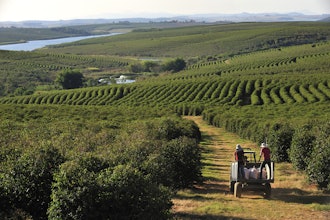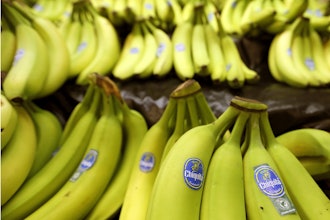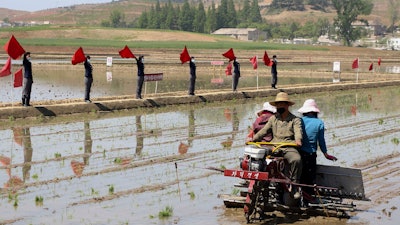
SEOUL, South Korea (AP) — North Korea has scheduled a major political conference to discuss the "urgent task" of improving its agricultural sector, a possible sign of worsening food insecurity as the country's economic isolation deepens amid a defiant nuclear weapons push.
North Korea's official Korean Central News Agency said Monday that members of the ruling Workers' Party's Politburo met on Sunday and agreed to hold a larger plenary meeting of the party's Central Committee in late February to review strategies on agriculture and set new goals. It said the Politburo members acknowledged a "a turning point is needed to dynamically promote the radical change in agricultural development."
"It is a very important and urgent task to establish the correct strategy for the development of agriculture and take relevant measures for the immediate farming … to promote the overall development of socialist construction," the KCNA said.
The Politburo meeting came amid indications that the country was preparing to stage a massive military parade in Pyongyang, possibly this week, to glorify the rule of leader Kim Jong Un and his growing collection of nuclear-capable weapons, which he has aggressively pushed to expand despite limited resources and economic decay.
Lee Sung-jun, spokesperson of South Korea's Joint Chiefs of Staff, said the South Korean military has been detecting "increased activity related to (parade) rehearsals" in the North, but declined to share a specific assessment on when the event would take place.
Although not unprecedented, it's uncommon for North Korea to hold two different party plenaries in a span of two months. It's also rare for North Korea to call a plenary meeting over a single agenda, this time agriculture, South Korean Unification Ministry spokesperson Koo Byoungsam said in a briefing.
"The government will closely watch North Korea's food situation and internal trends," said Koo. He said South Korea estimates that North Korean food production fell by about 4% in 2022 to 4.5 million tons.
Following the collapse of nuclear negotiations with the United States in 2019, Kim declared to strengthen his nuclear weapons and missile program against "gangster-like" U.S. sanctions and pressure and urged his nation to stay resilient in the struggle for economic self-reliance.
But the emergence of the COVID-19 pandemic unleashed further shock on North Korea's already broken economy, by forcing the nation to shield its poor healthcare system with strict border controls that choked off trade with China, its main ally and economic lifeline. The country was also hit with devastating typhoons and floods in 2020 that decimated crops.
In a study published on the North Korea-focused 38 North website last month, analyst Lucas Rengifo-Keller said food insecurity in North Korea is likely at its worst since the country's 1990s famine that killed hundreds of thousands of people.
It's difficult to establish an accurate assessment of North Korea's humanitarian needs considering the closed nature of its regime and the poor quality of the limited statistics it discloses. But North Korea's grain balance estimates issued by U.N. agencies and outside governments as well as possibly sharp increases in rice and corn prices observed by NGOs and media indicate that "country's food supply has probably failed to satisfy minimum human needs," Rengifo-Keller wrote.
Russia's war on Ukraine likely worsened the situation by driving up global prices of food, energy and fertilizer, on which North Korea's agricultural production is heavily dependent.
"Put simply, North Korea teeters on the brink of famine," Rengifo-Keller said.
The Workers' Party's Central Committee also held a plenary meeting in December, when Kim doubled down on his nuclear ambitions by calling an "exponential increase" of nuclear warheads, mass production of battlefield tactical nukes targeting rival South Korea and the development of more powerful long-range missiles designed to reach the U.S. mainland.
Party members also during the meeting identified key economic projects for 2023, highlighted by agricultural and construction activities.















